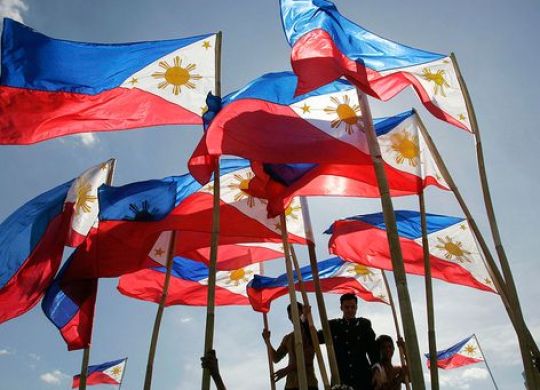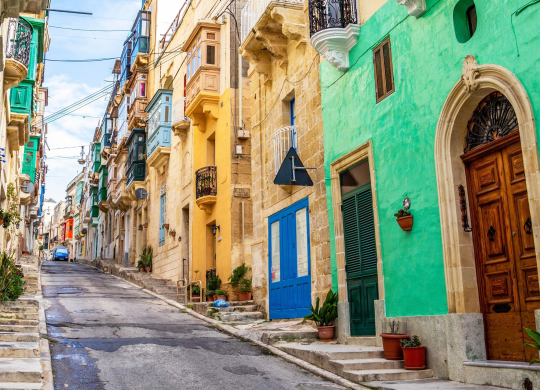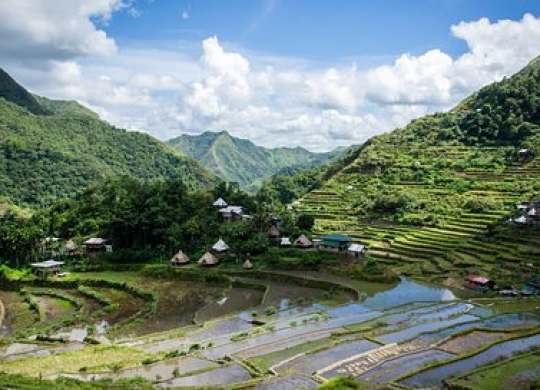Higher education in the Philippines: why you should consider a student visa in the country

Do you dream of a high-quality, European-level education, but somewhere on the sunny shores of a warm ocean? Then you will definitely be interested in the possibility of studying in one of the most Europeanised countries in Asia - the Philippines. After all, this Pacific island state is not only known for its exotic nature or paradisiacal holidays, but also for its rather high standard of living and its leaning towards a Western model of education and work.
The education system in the Philippines
The Philippine education system is considered one of the most prestigious in Asia. Its structure was most influenced by the United States during America's colonial rule in the Philippine territory. This is what shaped the American educational model that is still used by educational institutions in the country. And the main language of instruction in many universities and colleges is English, which is officially recognised as the second official language alongside Filipino.
Education in the Philippines lasts for 12 grades: The first 6 are a primary school, 7 to 10 are middle school, 11 and 12 are a high school. Issues related to the educational process are often resolved by the parent committee together with the teachers. The cost of primary school education is purely nominal, so basic education can be considered free for Filipinos. The holiday system in the Philippines, by the way, is far from world standards. After all, local school students take a break from April to May, which is due to the arrival of the rainy season during this period.
In high school, students can choose their own subjects, depending on their own preferences and abilities. The main disciplines are:
- humanities;
- communication;
- physical education;
- mathematics;
- philosophy;
- social sciences;
- philology;
- natural sciences.
Educational programs in Philippine universities teach in English and are based on the model of Western countries. But the cost of tuition and living in dormitories is much lower than in Europe. This attracts foreign students from all over the world to the Philippines. In Philippine universities, students study according to the Bologna system and obtain three levels of education: bachelor's, master's, and postgraduate. The academic year at the university begins in June and ends in May.
Top universities in the Philippines
The Pontifical and Royal University of Santo Tomas is the oldest university not only in the Philippines but also in all of Asia. It was founded in the early 17th century. Dominican Missionaries. The educational institution offers a wide range of educational programs and degrees in the following fields: health care, humanities, and social sciences, music and arts, physical education and sports, mathematics and engineering technology, philosophy, and theology.
Adamson University has become the most famous private Philippine university in its almost 100-year history. Here you can study for a degree, obtain a master's degree and become a Doctor of Philosophy. The university is made up of 10 faculties: architecture, education, engineering, humanitarian sciences, pharmacy, hospitality and culinary arts, natural sciences, business management, legal studies, and secondary medical personnel.
Ateneo de Manila University is a Catholic university that has been operating in the Philippines since the mid-19th century. The university also has elementary, middle and high schools. The university's education system provides education in the fields of arts, mathematics, chemistry, physics, medicine, business, humanities, law, information technology, mechanical engineering, computer science, biology and environmental studies.
Student visa for the Philippines
A student visa is required for all adult foreigners who wish to study in the Philippines. But in order to do so, you must prove your financial ability to pay your tuition fees, as well as receive an enrolment notice from the university. The university itself must submit the applicant's documents to the Ministry of Foreign Affairs. A more detailed list of documents required for the visa application can be found here. Usually, a student visa is issued for the period provided for in the educational programme.
Recommended articles
4 min
Residence permit
3 min
Employment
Employment in the Philippines in 2024: features of the labor market and popular vacancies (updated)
The Philippines is not only a tropical travel paradise, but also a great place to live permanently. This island country can offer favorable employment conditions for foreigners. Find out more about the peculiarities of the labor market, salaries and the most popular vacancies in the Philippines in 2024
12 May. 2024
More details3 min
Education
3 min
Travels
All materials and articles are owned by VisitWorld.Today and are protected by international intellectual property regulations. When using materials, approval from VisitWorld.Today is required.